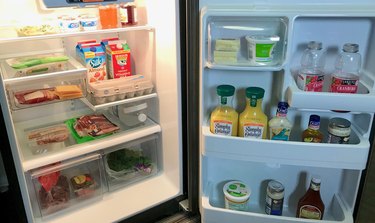If you've recently found yourself searching your cluttered refrigerator high and low for that last Oreo yogurt cup you've been craving, or disappointed to find the strawberries you just bought completely rotten, then it's probably time to give your fridge a much-needed makeover. Follow this simple tutorial to find out exactly where specific food items should be stored in your fridge so you can clear the clutter and keep your groceries fresh for as long as possible!
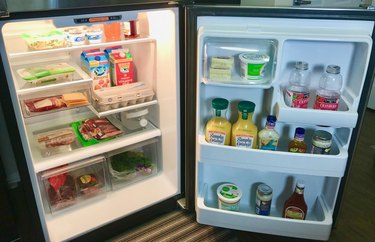
Video of the Day
Step 1: Clear It Out
It's best to start with a clean slate. Take all items out of your refrigerator and give it a good, sanitary wipe-down.
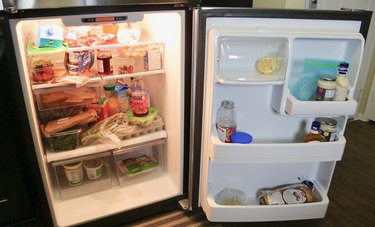
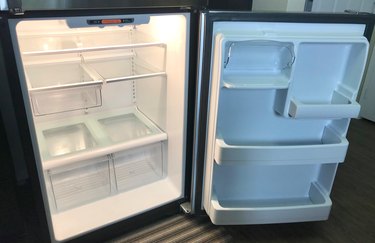
Step 2: Organize
Now that your fridge is spotless, it's time to start placing items in their correct places. Let's take it shelf by shelf:
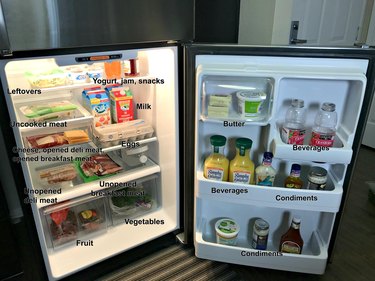
Top Shelf:
Foods such as leftovers, ready-to-eat snacks like yogurt and fruit cups, and jams/jellies should be stored on the top shelf. This is the warmest area of the fridge, so you want to store foods that don't require a very long shelf life here.
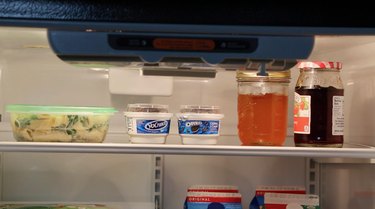
Middle Shelf:
This area is very cool, so it's perfect for storing foods including uncooked meat, milk and eggs to keep them fresh as long as possible. Milk should be stored toward the back for maximum cooling.
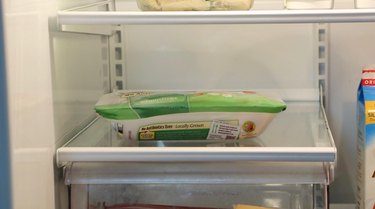
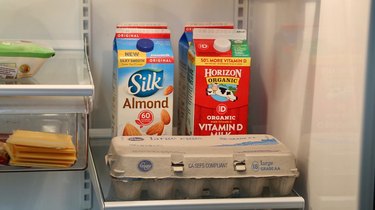
Deli Drawer:
This drawer is perfect for storing cheeses, opened deli meat and opened breakfast meat. This will keep your opened packages of cheese and meat fresher longer.
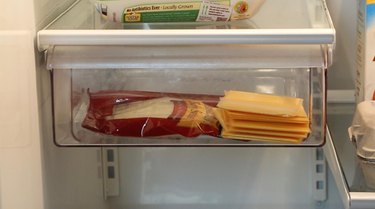
Bottom Shelf:
This is a great place for unopened deli meat and breakfast meat because they will remain cool until you are ready to open them. Store them in the deli drawer once opened, as mentioned above.
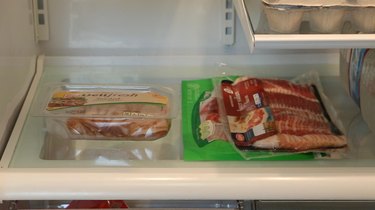
Crisper "Humidity" Drawers:
Fruits and vegetables should be separated and stored in crisper drawers for ultimate long-lasting freshness. Fruits require lower humidity levels than vegetables, which is why the two should be stored separately. If your refrigerator's crisper drawers do not have adjustable settings, slightly open the fruit drawer to lower humidity levels and allow gases to release. Likewise, completely close the vegetable drawer to increase humidity levels and keep greens crisp.
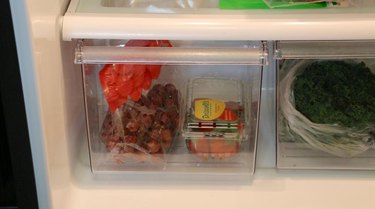
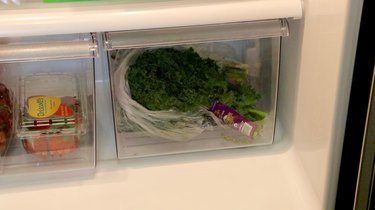
Door:
The door should hold items that are fine in warmer and fluctuating temperatures. This includes butter, beverages and condiments.
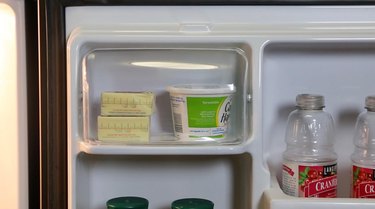
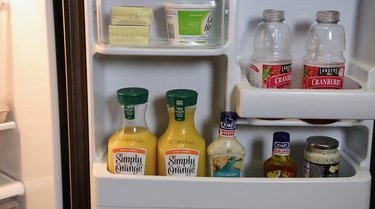
Now that your refrigerator is neat and tidy, your food will last much longer than ever before and your favorite snacks will be easy to locate. Happy organizing!
